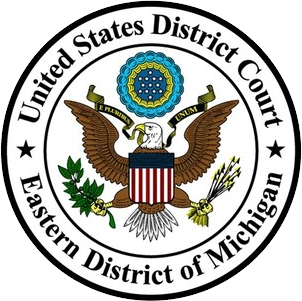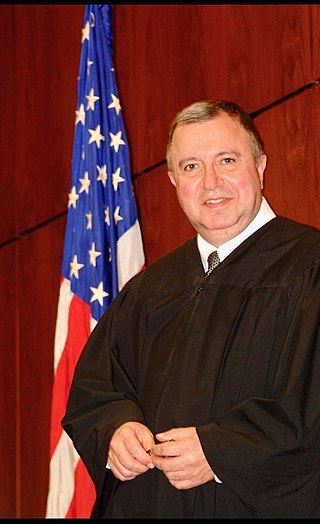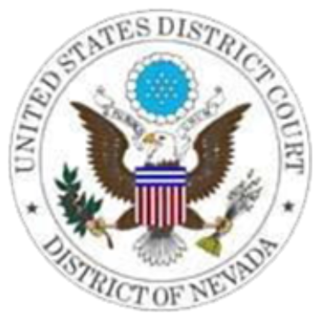Related Research Articles

Holmes County is a county located in the northwestern part of the U.S. state of Florida, in the Panhandle. As of the 2020 census, the population was 19,653. Its county seat is Bonifay.
Tinker v. Des Moines Independent Community School District, 393 U.S. 503 (1969), was a landmark decision by the United States Supreme Court that recognized the First Amendment rights of students in U.S. public schools. The Tinker test, also known as the "substantial disruption" test, is still used by courts today to determine whether a school's interest to prevent disruption infringes upon students' First Amendment rights. The Court famously opined, "It can hardly be argued that either students or teachers shed their constitutional rights to freedom of speech or expression at the schoolhouse gate."
Davis v. County School Board of Prince Edward County was one of the five cases combined into Brown v. Board of Education, the famous case in which the U.S. Supreme Court, in 1954, officially overturned racial segregation in U.S. public schools. The Davis case was the only such case to be initiated by a student protest. The case challenged segregation in Prince Edward County, Virginia.
Student rights are those rights, such as civil, constitutional, contractual and consumer rights, which regulate student rights and freedoms and allow students to make use of their educational investment. These include such things as the right to free speech and association, to due process, equality, autonomy, safety and privacy, and accountability in contracts and advertising, which regulate the treatment of students by teachers and administrators. There is very little scholarship about student rights throughout the world. In general most countries have some kind of student rights enshrined in their laws and proceduralized by their court precedents. Some countries, like Romania, in the European Union, have comprehensive student bills of rights, which outline both rights and how they are to be proceduralized. Most countries, however, like the United States and Canada, do not have a cohesive bill of rights and students must use the courts to determine how rights precedents in one area apply in their own jurisdictions.

The United States District Court for the Southern District of Florida is the federal United States district court with territorial jurisdiction over the southern part of the state of Florida.

Deroy Murdock is an American political commentator, a contributing editor with National Review Online, an emeritus media fellow of the Hoover Institution at Stanford University, and member of the Council on Foreign Relations. A native of Los Angeles, Murdock lives in New York City. A first-generation American, his parents were born in Costa Rica.

Dean v. Utica Community Schools, 345 F. Supp. 2d 799, is a landmark legal case in United States constitutional law, namely on how the First Amendment applies to censorship in a public school environment. The case expanded on the ruling definitions of the Supreme Court case Hazelwood School District v. Kuhlmeier, in which a high school journalism-oriented trial on censorship limited the First Amendment right to freedom of expression in curricular student newspapers. The case consisted of Utica High School Principal Richard Machesky ordering the deletion of an article in the Arrow, the high school's newspaper, a decision later deemed "unreasonable" and "unconstitutional" by District Judge Arthur Tarnow.

Beussink v. Woodland R-IV School district, 30 F. Supp. 2d 1175, was the first case in United States law to rule on the right of students to speak off-campus in an online forum, and as result of this case, it is often cited in other off-campus online speech cases. It was decided in the United States District Court for the Eastern District of Missouri, Southeastern Division.

Samuel Der-Yeghiayan is a former United States District Court Judge of the Northern District of Illinois. He was appointed in 2003. Der-Yeghiayan is noteworthy as being the first Armenian immigrant U.S. District Court Judge in the United States and served over 40 years of distinguished government service.
The Boonton Public Schools is a comprehensive community public school district that serves students in pre-kindergarten through twelfth grade from Boonton, in Morris County, in the U.S. state of New Jersey.
John Richard Smoak Jr. was a United States district judge of the United States District Court for the Northern District of Florida.
Pemberton v. Tallahassee Memorial Regional Center, 66 F. Supp. 2d 1247, is a case in the United States regarding reproductive rights. In particular, the case explored the limits of a woman's right to choose her medical treatment in light of fetal rights at the end of pregnancy.
David Ormon Carter is a United States district judge of the United States District Court for the Central District of California.

The American Foundation for Equal Rights (AFER) was a nonprofit organization active in the United States from 2009 through 2015. The organization was established to support the plaintiffs in Hollingsworth v. Perry, a federal lawsuit challenging California's Proposition 8 under the Due Process and Equal Protection Clauses of the Fourteenth Amendment to the United States Constitution. AFER retained former United States Solicitor General Theodore B. Olson and David Boies to lead the legal team representing the plaintiffs challenging Proposition 8.
The issue of school speech or curricular speech as it relates to the First Amendment to the United States Constitution has been the center of controversy and litigation since the mid-20th century. The First Amendment's guarantee of freedom of speech applies to students in the public schools. In the landmark decision Tinker v. Des Moines Independent Community School District, the U.S. Supreme Court formally recognized that students do not "shed their constitutional rights to freedom of speech or expression at the schoolhouse gate".

Fricke v. Lynch, 491 F. Supp. 381, was a decision in the United States District Court for the District of Rhode Island that upheld the right of Aaron Fricke to bring a same-sex date to a high school dance. The Court ruled that existing free speech doctrine protected gay and lesbian students' rights to attend their proms with same-sex dates of their choice. The case was "one of the first successful victories in the courtroom for an LGBT issue involving young people, and is routinely cited each year in numerous cases surrounding the rights of students to bring same-sex dates to school functions."
Access Now, Inc. v. Southwest Airlines Co., 227 F. Supp. 2d 1312, was a decision of the United States District Court on 18 August 2002. It concerned the nature of Title III of the Americans with Disabilities Act of 1990. The court determined that Southwest Airlines website is not a “place of public accommodation” as defined in Title III of the Americans with Disabilities Act of 1990. The case determined that the Southwest Airlines internet website was not in violation of the Americans with Disabilities Act of 1990 as the Americans with Disabilities Act (ADA) is concerned with a physical existence and hence cannot govern what it is in cyberspace. Judge Seitz also explained that the “virtual ticket counter” Southwest Airlines Co’s website was a virtual construct and hence not a “public place of accommodation” and as such “To expand the ADA to cover "virtual" spaces would be to create new rights without well-defined standards".
Elgin v. Department of the Treasury, 567 U.S. 1 (2012), was a United States Supreme Court case where the Court ruled that the Civil Service Reform Act of 1978 (CSRA) gives exclusive jurisdiction for claims under the Act to the U.S. Court of Appeals for the Federal Circuit. Additionally, the Court held that the Act bars federal district courts from ruling on matters related to the act including adverse employment actions of the federal departments, and allows the Merit Systems Protection Board to hear constitutional arguments for wrongful employee severance and adverse employment actions. It was a 6–3 decision, with the majority opinion delivered by Justice Clarence Thomas. The case greatly limited the recourse of federal employees to the courts for adverse employment practices, allowing such recourse only to a few, specific courts as aforementioned.

Henkle v. Gregory, 150 F. Supp. 2d 1067, was a federal lawsuit that ended in a 2002 agreement in which the Washoe County School District (Nevada) agreed to implement policies to support openly gay and lesbian students and to pay the plaintiff, a student who had complained of harassment and inaction on the part of school officials, $451,000 in damages. The plaintiff's attorneys called it "the largest pre-trial award of its kind in history".

Williams v. Vidmar, 367 F. Supp. 2d 1265, was a lawsuit filed in federal court on November 22, 2004. It alleged that Patricia Vidmar, the then Principal of Stevens Creek Elementary School in Cupertino, California, was interfering with the first amendment rights of Stephen Williams, a fifth-grade teacher at Stevens Creek Elementary School. The lawsuit also named the board members of the Cupertino Union School District as defendants.
References
- ↑ ACLU complaint filing, accessed February 16, 2010
- 1 2 School Board response letter, accessed February 16, 2010
- 1 2 Gillman v. Holmes County School District, 567F. Supp. 2d1359 ( N.D. Fla. 2008).
- ↑ ACLU request for clarification, accessed February 16, 2010
- ↑ Principal Said Rainbows Are "Sexually Suggestive", accessed February 16, 2010